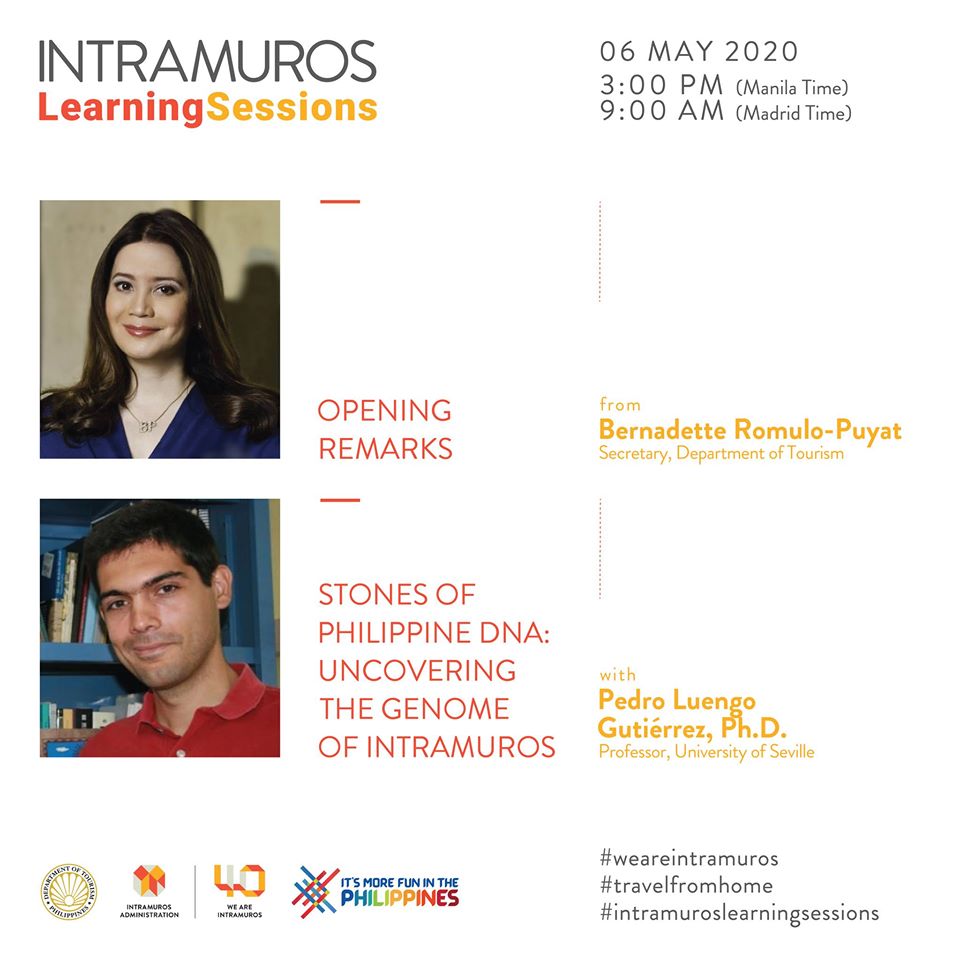Intramuros Learning Sessions episode no. 3

Overview
Nowadays Intramuros is a little space full of heritage, tourists and students. Its long history has been explained as a mere consequence of the Spanish conquest, maybe without the monumentality of other Caribbean ports. Philippine contribution remained obviated, being considered as another colonial break in local history. This perspective, aftermath of overtaken historiographical traditions, has negatively affected Intramuros perception by national and international people. On the contrary, historical sources and new technologies provides new interpretations. Intramuros was shaped for Spanish needs, but the project required local workers, from stonemasons to architects; nearby materials, most of them unknown for the conquers; and adaptative solutions in technical and decorative terms. As a consequence, these buildings become real contributions to the History of Architecture, not as good examples of adaptation or understanding of Western traditions, but as new witty proposals. Analysing, and later explaining, these heritage from this perspective, allows to see how the Southeast Asian background arise. Even while the growing context of the country has been framed by foreign powers, the local flavour remained. From this point, a better and more accurate interpretation of Intramuros can be provided to both local students and foreign visitors.
- Guest speaker: Pedro Luengo, Ph.D.
- Moderator: Rancho Arcilla
About the Speaker: Pedro Luengo, Ph.D.
Prof. Dr. Pedro Luengo Guttierez has an undergraduate degree in Music from the Conservatorio Superior de Música de Sevilla, and a PhD in History of Art from the Universidad de Sevilla.
He is presently a professor at the History of Art Department at the same institution, and is recently a visiting researcher in Manila, Mexico, Florence, and London.
Some of his books are: Manila Plaza Fuerte Ingenieros Militares entre Asia, America, y Europa; From Colonies to Countries in the North Caribean; and Convents of Manila: Globalized Architecture during the Iberian Union, which was recently awarded with the John C. Kaw Prize for Best Book in History in the 38th National Book Awards in 2019.
About the moderator: Rancho Arcilla
John Paul Escandor Arcilla, known professionally as Rancho Arcilla, is the author of the Intramuros Register of Styles (2021). He served as Chairperson of the Intramuros Technical Committee on Architectural Standards (TCAS) from June 2022 to May 2024. As TCAS Chairperson, Arcilla oversaw the review of all development, including new constructions, in the Walled City.
Arcilla was also the first Archivist of the Intramuros Administration. With a mandate from Atty. Guiller Asido, Administrator of Intramuros from 2017 to 2022, Arcilla established the Administration’s Archives and Central Records Section, serving as its first Section Head from July 2019 to June 2024.
He has an MA in Philippine Studies from UP Diliman and a BA in Asian Studies from the University of Santo Tomas. Arcilla specializes on colonial architecture.
In 2021, Arcilla was instrumental in the development of the Revised 2021 Implementing Rules and Regulations (IRR) of Presidential Decree No. 1616, the main framework and legal instrument in the management of Intramuros District. The architectural provisions of the IRR and the Intramuros Register of Styles (2021) is based on his MA thesis Walls within Walls: The Architecture of Intramuros (2021).
About the Intramuros Learning Sessions
The Intramuros Learning Sessions (ILS) is the educational lecture series of the Intramuros Administration (IA). The IA is an attached national government agency under the Department of Tourism.
Topics are interdisciplinary and cover themes related to Intramuros and Manila studies, Philippine studies, as well as cultural heritage studies. Pursuant to IA’s charter, the ILS aims to contribute to the strengthening of the Filipino’s national identity and sense of belonging and pride.
| See Previous ILS Episode Did The Mudejar Style Make It to the Philippines? | See Next ILS Episode Intramuros and the Making of the Filipino Nation |
Check out our previous ILS episodes here
For more information contact the Center for Intramuros Studies via research@intramuros.gov.ph
Cannot find what you are looking for? Try requesting for more data via our eFOI Portal.





